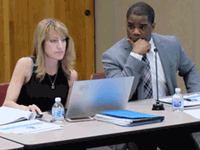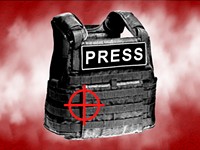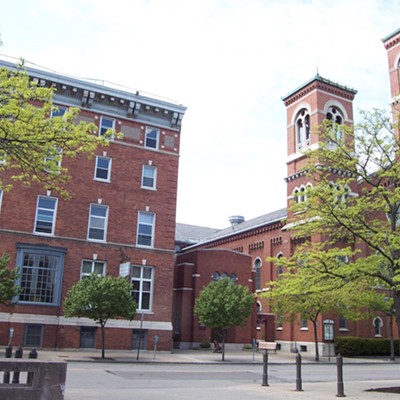[
{
"name": "500x250 Ad",
"insertPoint": "5",
"component": "15667920",
"parentWrapperClass": "",
"requiredCountToDisplay": "1"
}
]
The plight of the refugees is heartbreaking, and horrifying. Little Aylan Kurdi was only one of hundreds of thousands seeking asylum – from Syria, Eritrea, Somalia, Nigeria, Iraq, Afghanistan, Pakistan….
"It is the biggest migration into Europe since the end of World War II," writes Wall Street Journal columnist Peggy Noonan, "and is shaping up to be the first and sustained challenge of the 21st century."
Note that ominous word "sustained." Violence; ethnic tension, government instability, incompetence, and brutality; climate change; population growth: all are feeding the migration pressure, and they're not going to end soon.
"The barrier that once protected the rich world from the poor has been crumbling for years, undermined by globalization and the information revolution," editors at The Nation said last week. "No amount of barbed wire or steel can stand it up again."
Swift, broad humanitarian response is essential. We can't turn our backs. And yet the more refugees the world takes in, the more we'll find at our door. European Union doctrine says the refugees have a right to asylum in EU countries. But Europe's capacity isn't unlimited.
"Ten thousand refugees is one thing," Walter Russell Mead wrote in the Wall Street Journal; "ten million is another. Somewhere between these extremes is a breaking point at which the political system will no longer carry out the legal mandate."
Anti-immigrant sentiment in Europe, which was already a problem, is growing. Nor is hostility to immigrants rare here in The Homeland, where it has infested the current presidential campaign. Most of it's directed against people coming in illegally, but Republican frontrunner Donald Trump makes no distinction. He's been lashing out at all immigrants, saying they have "destroyed our middle class."
And yet it is far too easy – and a big mistake – to dismiss the concerns that citizens of a country have about immigration. Can every country care for the immigrants heading to its borders: feed them, house them, educate them, provide health care for them? Are there enough jobs – jobs paying adequate wages – for everyone, residents and immigrants alike? Will the influx of immigrants have no negative impact on residents already hurt by trade policies, technological advances, and industry decisions?
As with so many crises, this one has deep, deep roots, and responses have to acknowledge all of them and address some of them. In a troubling New York Times column, Thomas Friedman suggested two possible responses.
"If we're honest," Friedman wrote, "we have only two ways to halt this refugee flood, and we don't want to choose either: build a wall and isolate these regions of disorder, or occupy them with boots on the ground, crush the bad guys, and build a new order based on real citizenship, a vast project that would take generations."
No, we don't want to choose either, nor should we. And certainly a short-term response has to include accepting more refugees, including in the United States. But a longer-term response has to include economic aid to distressed countries. It has to include international efforts to protect the oppressed and to ostracize and weaken oppressive regimes, despite the resistance of governments like Russia.
And here in this isolated, well-protected country, the refugee crisis needs to be on our mind as the presidential campaign intensifies. We need to push back hard against the anti-immigrant voices of presidential candidates and members of Congress. We need to support the push for a higher minimum wage, job training, and other measures that will provide stability here at home. And we need to support presidential candidates who value diplomacy over knee-jerk military responses to international crises.
Max Rosenthal, writing in Mother Jones, reminds us that the United States took in hundreds of thousands of refugees from Southeast Asia after the Vietnam War, part of an international effort that resettled 1.3 million refugees. We were that kind of nation then. The coming months of the presidential campaign will tell us whether we want to be that kind of nation again.
Speaking of...
Latest in Urban Journal
More by Mary Anna Towler
-

Police reform: advocates on what should come next
Oct 22, 2019 -

Court clears the way for Police Accountability referendum
Oct 17, 2019 -

Dade outlines initial actions on district deficit
Oct 9, 2019 - More »








